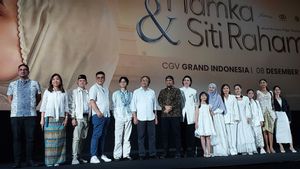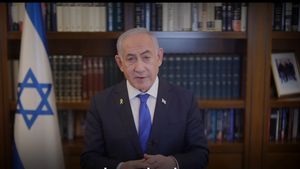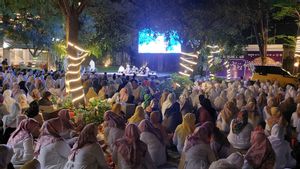YOGYAKARTA Orthodox Christian Christmas celebration January 7, is different from Catholic and Protestant Christians who celebrate Christmas every December 25. So why does the Christmas celebration have a long time difference? Come on, find out the reason below.
The reason for the time difference between Orthodox Christian Christmas celebrations with Catholics and Protestants is related to the calendar held.
It is known that Orthodox Christian Gereka is still retaining the Julian calendar introduced by Yulius Caesar in 45 BC. While the majority of Christian churches use the Gregorian calendar, the dating system built by Pope Gregorius XIII and introduced to the world in 1582.
This calendar difference raises disagreements over the exact time of Jesus' birth.
Based on VOI's search, from the 2nd to the 14th centuries, the birth of Jesus Christ was celebrated at the same time as the inauguration of God, which was more familiarly heard as Epifani. This is based on Julian's imprisonment.
However, this did not last long. In the 4th century, Western churches distinguished the time of Christmas and Epifani celebrations.
This change was made in an effort to replace the Roman Empire's Pagan: Sol Invictus (Unbeaten Sun) and Saturn (holiday to honor the Saturnese god). Since then, December 25 is designated as the birthday of Christ.
Following the Western Church's decision, in the 4th century, the Eastern Church also designated December 25 as the birthday of Christ.
Pope Gregorius XIII in 1582 sparked a Gregorian calendar that made all holidays permanent, and Christmas celebrations on December 25 unchanged.
However, the decision was rejected by a number of churches, including the Russian Orthodox Church, which still uses the Julian calendar. However, until 1917, the Russian empire designated December 25 and 26, as official holidays.
However, on January 24, 1918, Russia's House of Commissioners reviewed the introduction of the Gregorian calendar in Russia. Vladimir Lenin, as Chairman of the Board of Commissioners, signed the request into law on January 26, 1918.
Since then, the Russian Orthodox Church has only acknowledged and continues to use the Julian calendar so that Orthodox Christmas in general will be celebrated every January 7th.
However, Russia's Central Executive Committee in 1918 no longer made the Birth of Christ a public holiday. This decision was confirmed in the 1920s with a massive anti-religious campaign.
SEE ALSO:
This event lasted into the 1990s and ended on December 27, 1990, following the issuance of the RSFR Highest Council ruling which reads: In connection with Patriarch Alexy II's request, from Moscow and Russia, and as a sign of respecting the religious feelings of the trusted people decided to consider January 7 as a public holiday.
For additional information, the celebration of Christmas January 7 was attended by about 12 percent of the world's Christians. The celebrations usually occur in Russian Orthodox churches, Gregoria, Jerusalem, Poland, and Serbia, monasteries and monasteries in Greece, as well as the Eastern Catholic Church and the Old Believers.
This is information about the celebration of Orthodox Christian Christmas January 7th. Hopefully this article can add insight to the loyal readers of VOI.ID.
The English, Chinese, Japanese, Arabic, and French versions are automatically generated by the AI. So there may still be inaccuracies in translating, please always see Indonesian as our main language. (system supported by DigitalSiber.id)

















